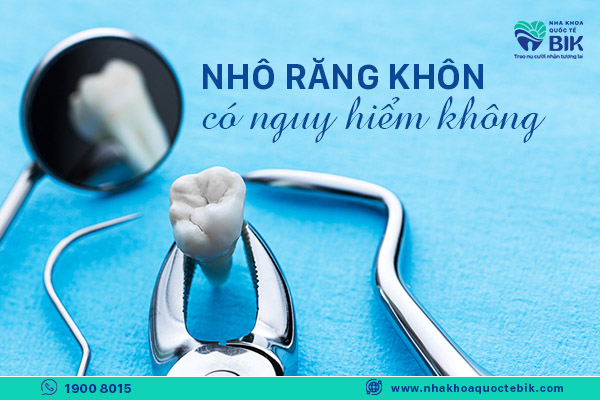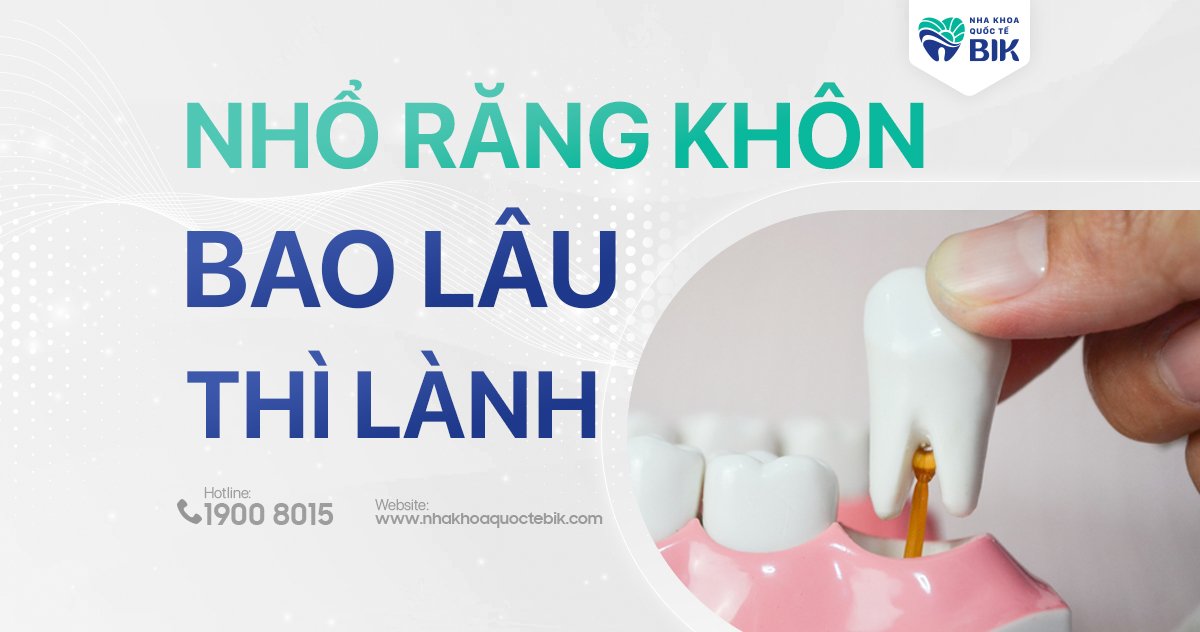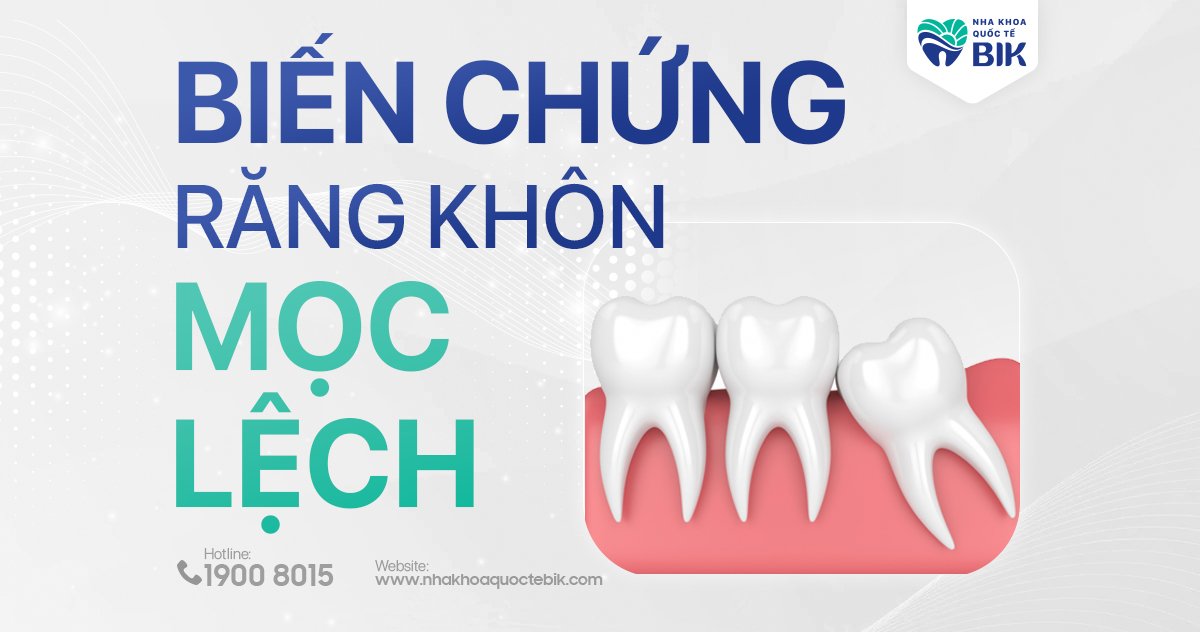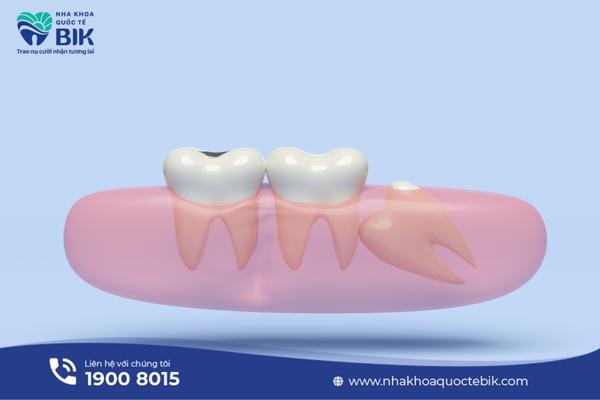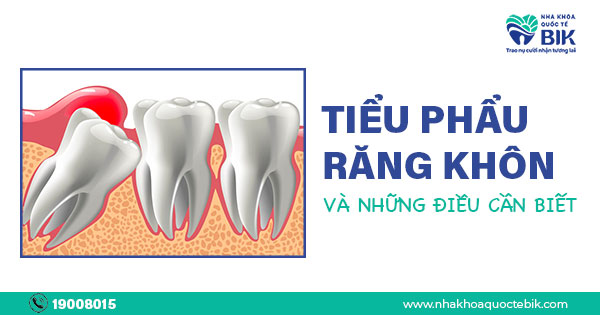Wisdom teeth are a nightmare for many people because of the pain and inconvenience they cause. Most people with wisdom teeth will be advised to have them extracted to avoid future complications. So do you know when wisdom teeth need to be extracted?
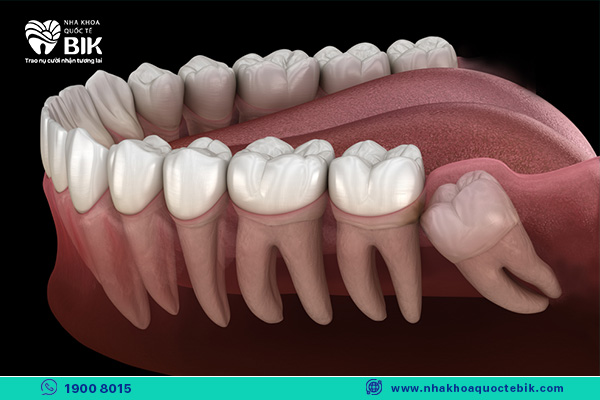
Impacted wisdom teeth need to be extracted
1. What is the function of wisdom teeth?
Wisdom teeth belong to the molar group, also known as number 8 teeth, the age of wisdom teeth eruption is usually between 17 and 25 years old, sometimes there are cases of wisdom teeth eruption later.
For many people, wisdom teeth have almost no function in chewing or aesthetics, on the contrary, they cause many inconveniences such as pain, inflammation… so most wisdom teeth will be extracted.

Most wisdom teeth have no function and need to be extracted
2. Is it necessary to extract wisdom teeth?
Most wisdom teeth do not have a chewing or aesthetic function, but not all cases require extraction. If the wisdom teeth have fully grown, grown straight, in the right position, and fit together with the opposite teeth, do not have any oral diseases, and do not cause any complications, they can be kept and do not need to be extracted.
If you have chronic diseases such as diabetes, blood clotting disorders, or cardiovascular diseases, etc., it is best not to have wisdom teeth extracted
3. Do painless wisdom teeth need to be extracted?
Usually, painless wisdom teeth may not need to be extracted if:
– The wisdom teeth are healthy and do not have tooth decay or periodontal disease.
– The wisdom teeth grow straight and develop completely like other permanent teeth.
– The wisdom teeth number 8 are in a straight position and have the opposite teeth that fit together.
– Wisdom teeth are normal in size, do not create a gap for food to get stuck with tooth number 7.
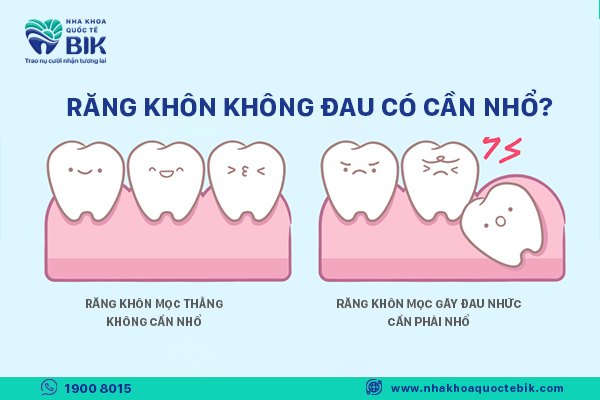
4. When do wisdom teeth need to be extracted?
As soon as pain and discomfort appear due to teething, most people want to have their teeth extracted immediately. However, when wisdom teeth need to be extracted is a factor you need to pay attention to, because wisdom teeth are not always indicated for extraction.
You should have your wisdom teeth extracted if you are in one of the following cases:
Wisdom teeth are decayed
Wisdom teeth are decayed or have diseases such as wisdom tooth gingivitis, periodontitis, etc.

Wisdom teeth with decay should be extracted immediately
Wisdom teeth growing in the wrong position causing pain
Wisdom teeth growing crookedly or impactedly cause wisdom tooth pain, causing the jaw to shift, or penetrating the adjacent tooth and causing damage to this tooth. On the other hand, teeth that are not positioned correctly on the jaw will create conditions for food to accumulate, causing gingivitis, tooth decay, etc.
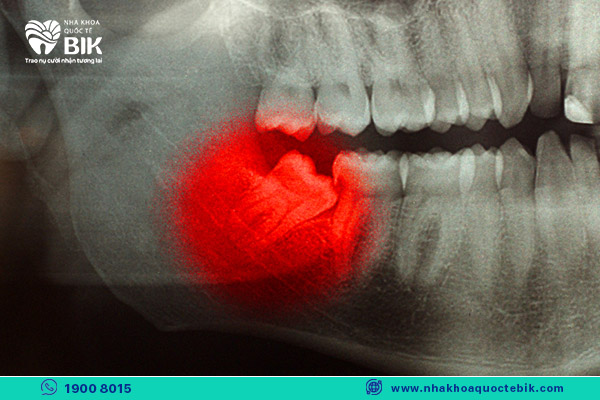
Wisdom teeth growing in the wrong position causing pain need to be extracted
Wisdom teeth causing gingivitis
When wisdom teeth do not grow completely, they get stuck under the gums, causing the gums to feel sore. In addition, during eating and drinking, food will also stick to this position, causing inflammation. Signs that wisdom teeth have caused gingivitis are pain, bleeding, and bad odor. This condition, if left untreated, will lead to pulpitis and, more seriously, jawbone necrosis.
Deformed wisdom teeth
Wisdom teeth grow straight but are deformed (too big, too small or too long) causing pressure on other teeth, stuffing food, getting stuck when chewing, etc.
In addition, wisdom teeth grow straight but do not ensure the bite correlation in the opposite jaw. If this condition is not removed, it will cause gum ulcers, tooth decay and affect the periodontal tissue of the adjacent teeth.
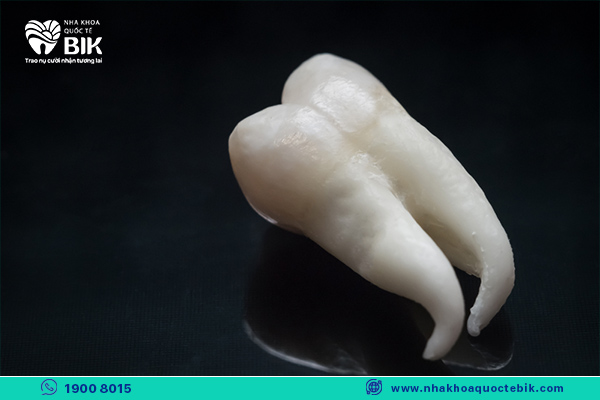
5. The right time to remove wisdom teeth
The best time for each person to have their wisdom teeth extracted is between 18 and 25 years old, when the tooth roots are only half formed and have not yet attached deeply to the jaw. As you get older, wisdom tooth extraction surgery will be more difficult due to harder and denser bones, longer healing and post-operative processes, etc.
If your health is completely normal, without blood or cardiovascular diseases, blood pressure, tooth extraction can be performed normally. If you have a history of gingivitis, tooth extraction needs to be done very carefully. In fact, if gingivitis has not been completely cured or is recurring, tooth extraction can be dangerous, causing prolonged bleeding to the damaged tissue around the tooth.
In addition, during pregnancy you should not have your teeth extracted because wisdom tooth and molar surgery requires X-rays, taking a lot of painkillers, and the extraction time is longer than normal teeth, which will make pregnant women tired and affect the health of both mother and baby. You should choose the right time to extract wisdom teeth without danger.
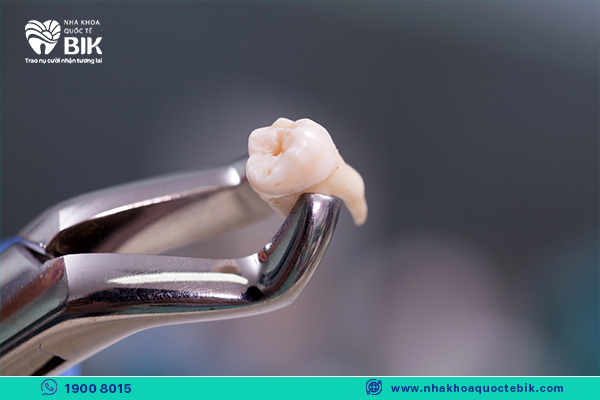
Good health is suitable for wisdom tooth extraction
6. Time not to extract wisdom teeth you should pay attention to
The location of wisdom teeth has quite a lot of nerves, so before extracting, you need to carefully consider whether wisdom tooth extraction is dangerous or not. Therefore, the following cases are not indicated for wisdom tooth extraction that you should pay attention to:
– People with cardiovascular diseases, diabetes, blood pressure.
– People who have just recovered from illness, with weak resistance.
– Pregnant women.
– People who are in their menstrual cycle.
These are cases where the health condition is not guaranteed to perform minor surgery to extract wisdom teeth. If you are experiencing the above problems, first clearly explain to your dentist so that the doctor can give you the safest instructions.

Absolutely do not extract wisdom teeth when pregnant
Hopefully, the above article provides you with useful information and things to know when extracting wisdom teeth. When you have a problem with your wisdom teeth, you should go to a reputable dental facility to be examined, have an X-ray, get specific advice about your case and have appropriate, scientific treatment. If you have any questions, please contact BIK International Dental Clinic via Hotline 1900 8015 for specific answers.

